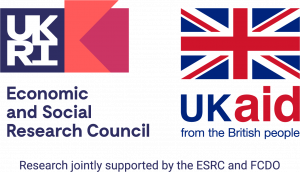Research Projects
1. Sea-level rise and everyday lives in small island states
This project investigates the effects of sea-level rise, and associated policies, on the everyday lives of communities in Fiji and the Maldives. In the past two decades, sea-level rise has become a major concern for researchers, decision-makers, affected communities and climate change campaigners. Yet, there is little understanding of how it is affecting people’s routines, activities and aspirations on a day-to-day basis. The everyday matters because it is central to human experience and the ways that people make sense of their lives and imagine their futures.
Our four key research questions are:
- How are the direct impacts of sea-level rise influencing islanders’ everyday lives and anticipated futures?
- How do ‘protect, accommodate and retreat’ policy responses further shape day-to-day practices and perceived futures?
- In what ways do island community members negotiate, accept or resist policies through their everyday activities?
- Which aspects of policy responses to sea-level rise improve everyday lives, and which are producing adverse outcomes?
Fiji and the Maldives are two small island developing states where the direct impacts of sea-level rise are of significant concern, and where governments are developing national policies and implementing climate change adaptation responses. In exploring these country contexts, the project aims to illuminate the everyday and geographically-situated nature of these responses, and to elicit insights into how the everyday lives of island communities are changing.
The project is a collaboration between the Universities of Melbourne and Queensland in Australia and The Universities of Manchester and Reading in the UK. It is funded by a three-year Australian Research Council (ARC) Discovery Grant.
2. Negotiating conflict: Environmental violence, economic development and the everyday practices of islanders’
The Maldives is well known as an international tourist destination, and particularly for the beauty of its beaches and coral reefs. What is less well understood, however, is the range of environmental challenges that island communities in the Maldives face, especially problems associated with coastal and beach erosion, urban development and waste management.
In many countries, getting the balance right between economic development and protection of the natural environment can be a major challenge. This is particularly the case when people have different perspectives on the best way to manage sensitive natural environments or when the plans of developers conflict with the priorities and values of local populations.
The first phase of the Everyday Lives in the Maldives project began in October 2017 and explored the relationship between tourism development and environmental sustainability, and its impact on the lives and livelihoods of small-island communities. We documented great concern amongst local populations about the effects that the following processes are having on island life:
- the erosion of beaches and coastline due to wave action, tidal currents, and human intervention;
- the daily accumulation of washed-up waste and rubbish deposited by people; and
- the rapid expansion of the built environment to support guesthouse development and increasing numbers of tourists.
The project helped to inform policymakers and the general public about these problems. The project also significantly built the capacity of the communities to articulate their concerns and propose locally-driven solutions directly to decision makers.
Phase two of the project will considerably deepen and extend these initial impacts by raising awareness of different ways in which not only present-day but also future island based environmental change might occur, especially in relation to climate change and sea level rise.
We will bring together material collected locally in the previous project, including islanders’ photographs depicting changes in their environment, with scientifically and digitally produced maps and images and archival material in community workshops in order to stimulate and deepen local and national debates on future island development.
Drawing on this range of information sources, islanders will be invited to create ‘story maps’ that represent their perceptions of changes over time. These story maps, plus associated materials, will then be displayed publicly at the National Art Gallery in the capital, Malé. We are hoping to create a space where policymakers and representatives of island communities can come together to discuss their priorities and concerns and identify how small islands can be made liveable over the long-term under climate change.
This research was funded by the ESRC and the former UK Department for International Development, which merged with the Foreign & Commonwealth Office on 2 September 2020 to become the Foreign, Commonwealth & Development Office.

